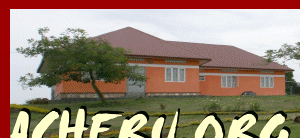| Circular - June 2023: Visitors' impressions, progress with renovations, and news of patients |
| A recent report from visitors to Acheru highlighted a number of issues which we are considering carefully. While they were impressed by what they saw of the work being done, they noted that some of the buildings had deteriorated. Joyce had already raised this with me and started a programme of renovation and upgrading, including changes in the way some individual buildings are used. |
| The biggest concern raised by the visitors (who had been there before) was how costs had risen. This of course puts significant pressure on the Acheru budget and we do all we can to help, but the staff too have been doing their best to control costs and plan for the future. |
| I've written about this before; we are focusing increasingly on work in the community as so many of the conditions we see should have been preventable or at least mitigated through earlier intervention. This means there are now fewer surgical inpatients at Acheru, and staff numbers have also reduced - but standards have been maintained where possible with 'shared' staff posts through our university partners. Relationships with other NGOs avoids unnecessary duplication, shares expertise and experience, and enables more children and families to be reached. |
| There's been a lot of development in the area around Acheru and what started out as a 'rural' site is now becoming part of Mukono town. This may result in more patients on our own doorstep with corresponding need for outpatient work, and we'll need to consider possibilities for education/training for disabled children if there is local demand. These are not decisions for me to make, I have confidence in the judgement of Joyce and other staff members as they evaluate all the different factors involved in planning. One consequence of all this development is increased traffic. Kampala and the area around it is one big traffic jam, and the Acheru staff spend many hours making very slow progress through clouds of dust and fumes. Previously, travelling early or late made the journey easier, but there's no avoiding it now, all they can do is try to ensure that journeys are essential. They regularly have to take children to and from CoRSU, this can't be avoided, and the only way is through Kampala. |
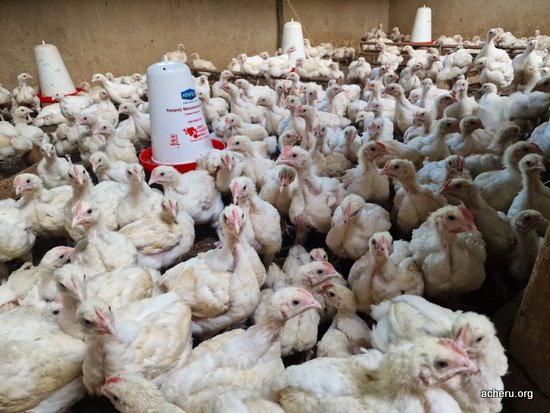
|
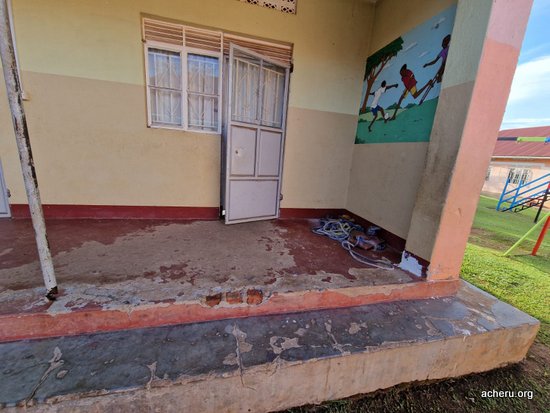
|
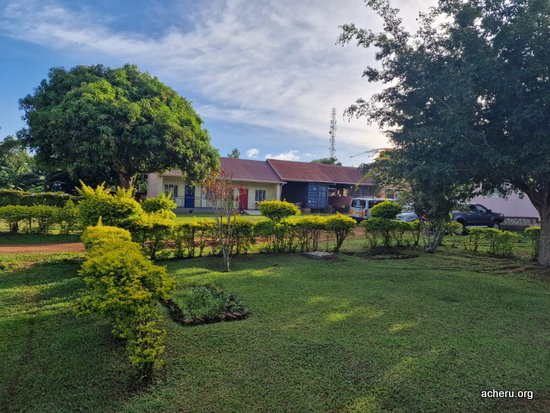
|
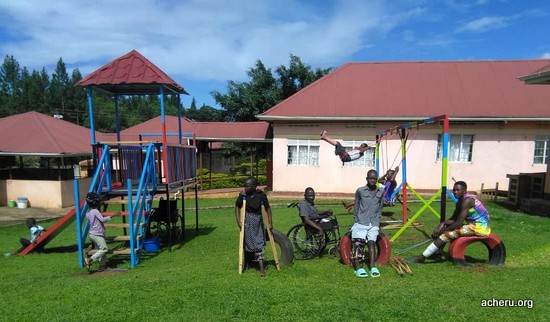
|
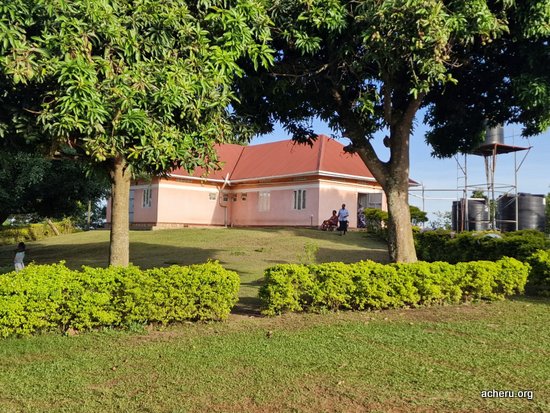
|
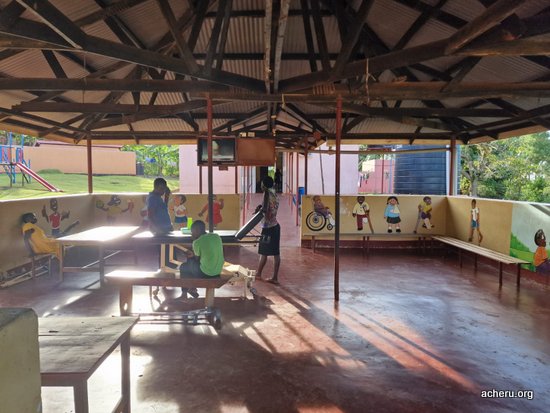
|
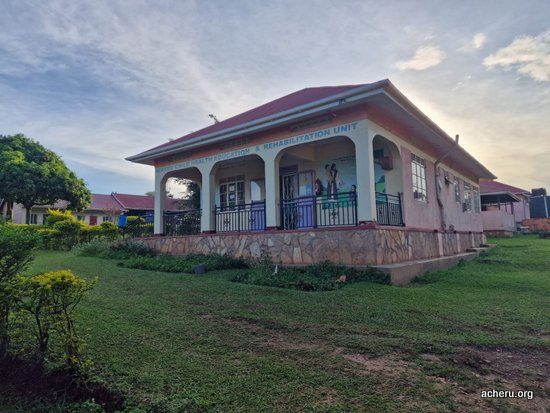
|
| While I am concerned about the strains on the Acheru budget, I have been encouraged while looking at the latest accounts to see a significant increase in the amount contributed by patient's families. Of course no child will be refused treatment on grounds of cost, but parents are encouraged to contribute. Most of our patients are from very poor areas, but others can certainly afford to pay something although even in such cases there's often the problem of a disabled child being perceived as having no value, so why waste money on treatment? I hope that the increased income we see from families is indicative of a change in attitude to the 'value' of the child and their acceptance within the family. |
| The north: Discussions continue about work in northern Uganda. There is continuing outpatient work at Minakulu, and while the numbers referred down to Acheru for surgery or other inpatient treatment aren't large, we are dealing with children who otherwise would not have been helped. We want to continue to see lives changed, and are acutely aware that over the whole of northern Uganda there are large areas where there is no possibility of treatment for disabled children. We want to raise awareness, alleviate suffering, and release the potential of children who may be hidden away. There are still so many waiting to be 'rescued' and my thoughts go back to an early patient described by the surgeon as the 'living dead'. |
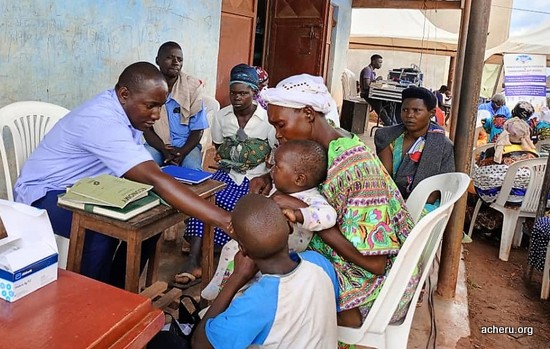
|
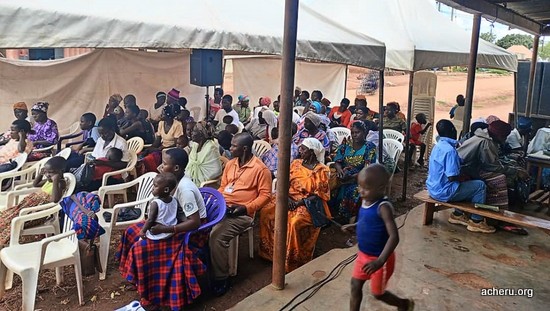
|
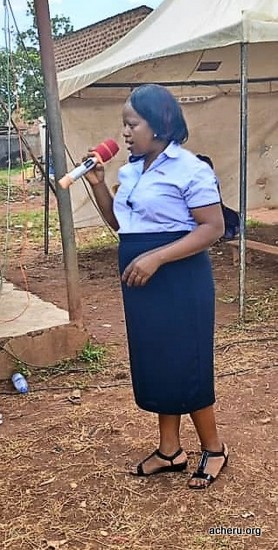
|
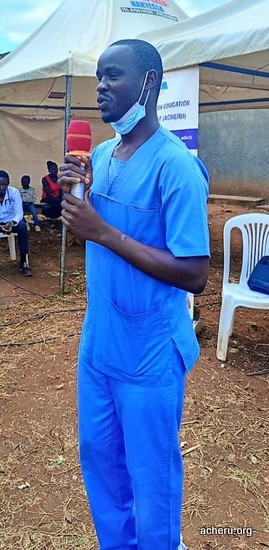
|
| Acheru staff conducting a community outreach at Nakyesa |
| Classroom: Work continues on some of the Acheru buildings. The improved classroom is now in use with another room available for younger children. Joyce now also wants to use a separate room for occupational therapy and I've sent out a few things to help with this. From time to time I send out a box by DHL with medical items which they find it difficult to obtain, and I make up any space with things which might be useful in the classroom. I don't spend much on this, sending donated items or things I've found in charity shops. It's cost effective, and I like to encourage the teacher who is so enthusiastic about his work. |
| Improvements have also been made to what Joyce refers to as the 'hostel', one of the rooms previously used to accommodate male carers. This is now used for longer term older rehab patients like Mubarak, rather than having them in an open ward with younger children. |
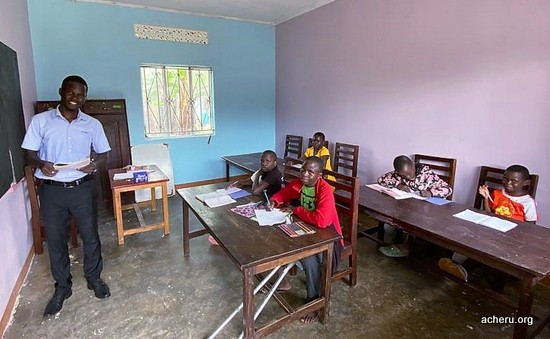
|
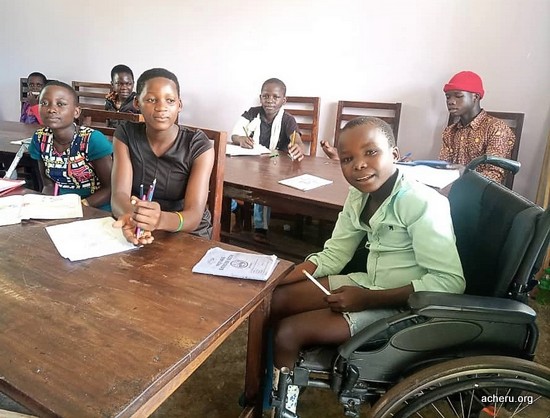
|
| Salama: Latest news is that, after further difficulties with 'bureaucracy', building work has started. |
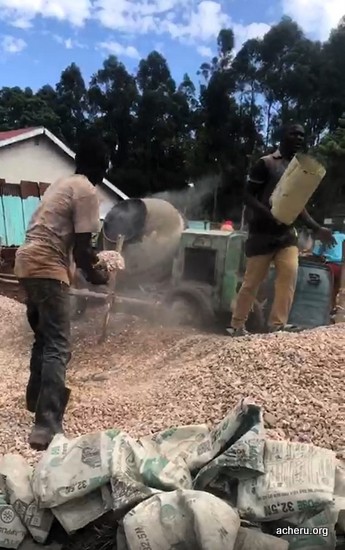
|
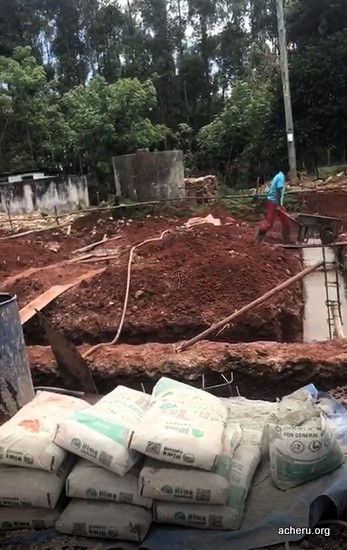
|
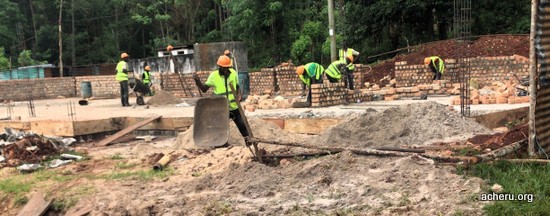
|
| Aidah: Many of you have followed the progress of Aidah and the setbacks she encountered in her medical training. Her determination has been an inspiration to others and it was a big day for us all when she finally graduated. Due to problems which I've written about before, and which were entirely beyond Aidah's control, first her graduation was delayed and then her internship was put back. This was eventually all resolved and she was due to start work in a hospital last month, but the Ministry of Health now say they have no money to pay the expenses of the interns, so the placements haven't gone ahead. This has affected all the recent graduates, but they can't work elsewhere without the licence they can only get after completing an internship. |
| This means that for now Aidah will continue to stay at Acheru, and we hope she can resume her voluntary placement at our partner hospital in Mukono, meaning she can at least continue to gain experience. |
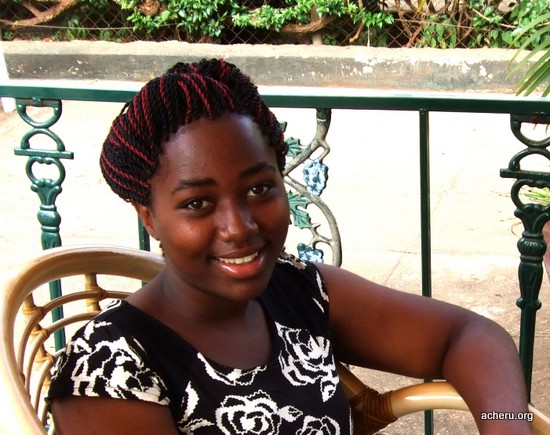
|
| Income generation: Many in Uganda are seriously affected by poverty but the impact on families with disabled children can be disproportionate. As well as additional costs incurred in caring for a disabled child there's the stigma around disability, with others in the community unwilling to help or making threats and leaving a family isolated. This of course is one of the reasons the Acheru community work is so important. |
| The following report by our social worker talks about income generating projects and how these can help the families concerned. We've long recognized the value of such 'micro finance' schemes and have had some limited involvement in the past but Acheru is a medical work and we can't afford to diversify into becoming a lender or developer. We are though happy to work with others who are trying to help the disabled and their families, it makes sense to work together where possible. |
| FORMATION OF INCOME GENERATING GROUPS FOR PEOPLE WITH DISABILITIES |
| This project is empowered by PILOT LIGHT with the help of ACHERU to educate and support people with disabilities learn how to work and save on their own so that they empower themselves through running small businesses which can support them and their families. Pilot Light is a saving and empowering program which teaches and supports people with disabilities through teaching them how to start small businesses. |
| These groups are formed on community (village) level with the help of technical people who can help them formulate constitutions and registration of the groups with the government so that they can get Certificates. |
| A number of groups from different villages are successfully educated and started their saving journey. They elected their management committee and started writing a constitution which will lead them to registration for certificates and opening bank accounts. |
| Written by Rose Nakabugo. |
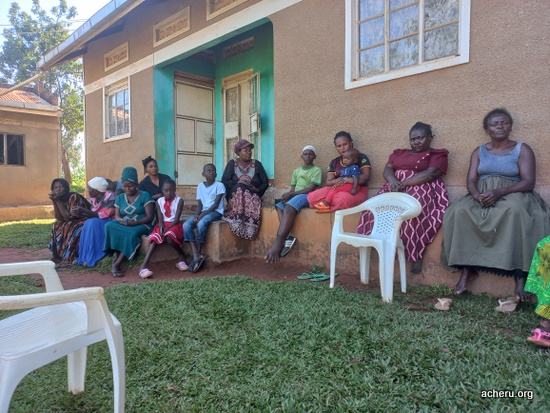
|
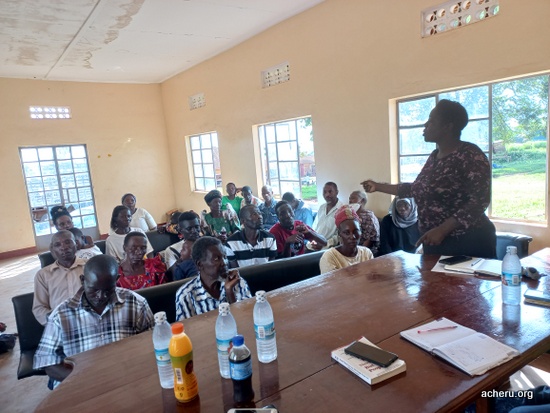
|
| Nabisubi Allhimah is a 5 year old girl who was brought to Acheru on 29th February, 2020 with a complaint of severe knock knees. She was assessed, examined and diagnosed with bilateral genu varum. |
| Allhimah was taken to CoRSU hospital for review by the orthopaedic surgeon. She was first put on observation for 6 months and then reviewed, given oral medication of tablets which she took for 6 months and there after scheduled for surgery (hemiepiphysiodesis of both tibiae and femur) on 17/03/2021 when there was reduction in COVID-19 spread. |
| She was reviewed on different appointments by the orthopaedic surgeons as she also continued to take oral medications which help in the correction of the deformity. |
| After the legs were straightened she was booked for hardware removal on 21st April, 2023, and she is now happy and doing well with properly aligned legs. |
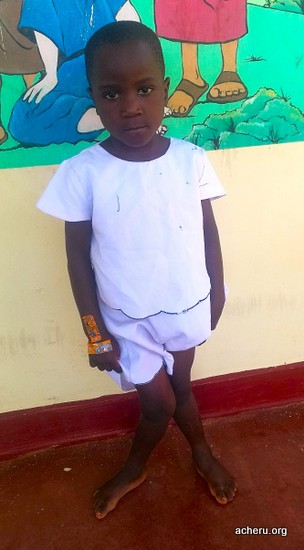
|
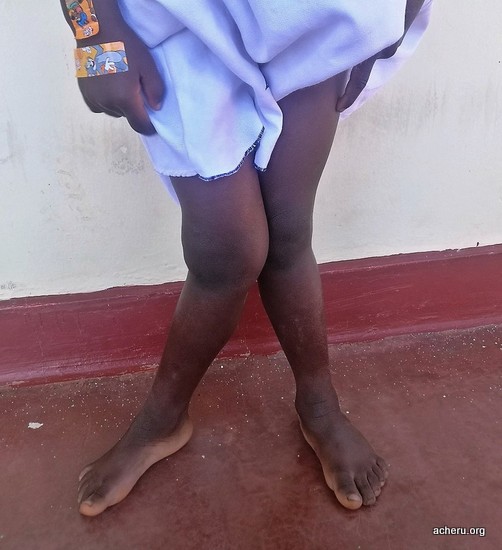
|
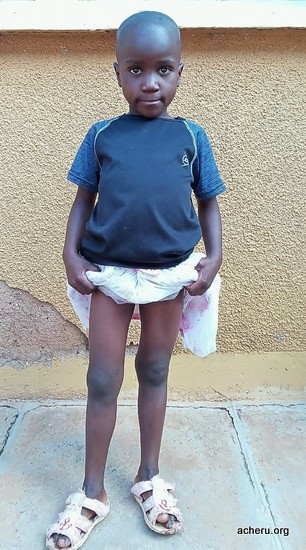
|
| HIV/Aids: Over the last few years work at Acheru has been significantly affected by restrictions around Covid and Ebola fever. Some restrictions were necessary, others seemed ill judged and caused serious difficulties , not just for Acheru. The staff had trouble with community work and home visits, travel restrictions made it difficult for children to be brought to Acheru, but the restrictions also meant school closures, problems with food distribution, and inevitably rising costs. Covid and Ebola became very topical issues, which perhaps led us to overlook another problem which has been around for a long time now - HIV/Aids. This is largely unseen but affects a great many people. It's worth noting that Uganda continues to have the world's highest rate of transmission, so it isn't something we can afford to overlook. |
Of course many children are born HIV positive and are dependent on anti retrovirals. This seems to weaken their bones, and they get children at Acheru with leg deformities as a consequence.
|
| Often when I check the bank statements there are gifts from people unknown to us. Some who send money wish to remain anonymous, with no receipt or acknowledgement. I want to thank all of you, we really appreciate your help; all such 'undesignated' gifts are used in full for the Acheru budget. |
